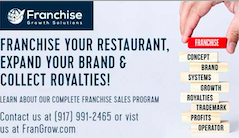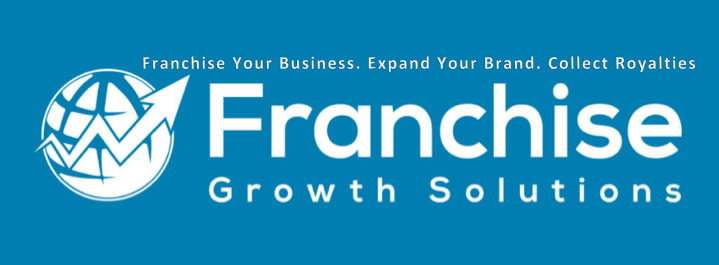Starting a business can be a life-altering event both good and sometimes not so good. One of the ways people reduce their risk is to purchase an established brand with a proven business model – a franchise.
Franchising has proved over and over again to give a new business owner the highest probability of success. If you follow the system, choose an experienced franchisor, work diligently, are appropriately funded and understand what you’re getting into then operating a franchise may be a perfect business model for you.
Selecting a franchise and purchasing a franchise combines gut reaction with solid research. Although there are many steps to buying a franchise here are my Top 6 Tips that will keep you moving forward in the process. I recommend never skipping or overlooking any of them.
Tip #1 – Begin With Some Soul Searching
Make a written list of what you believe you’re looking for in a business opportunity. However, for this exercise, you cannot put the words “make money” on your written list. The reason for that is simple. I want you to look inward at your dreams, background, hobbies, likes, dislikes, skills, social and community positions and all the elements that a business would need to deliver to you, despite the money. I know many franchisees and entrepreneurs that dread getting up every day to work their business even though are making all sorts of money. Franchisees that are great at selling or corporate engagement should seek a franchise that puts them in front of customers in a corporate environment, perhaps in the advertising business or financial business. Entrepreneurs that like to craft things or work outside or work with their hands should never seek out opportunities that land them behind a desk or stuck in a shop 12 hours a day. Although ultimately in time you will not be doing the “work of business” keep in mind that in the startup phase you may need to. Moreover, if you don’t like the work or have neither the time, desire or inclination to develop new skills you may never get to the next level in developing your business. If you can’t “see yourself” doing a particular type of work, then walk away, no matter how much money you think you’ll make. Look in the mirror and be honest when you sit down to write your list.
Tip #2 – How Much Available Capital Do I have?
Numerous business reports cite the number one reason a small business fails is that proper thought and consideration wasn’t given to the appropriate capital required to open and sustain the start-up of a small business. A lack of adequate money can destroy you before you even begin. It is crucial that you understand the numbers. Before you start your quest for a franchise, you should access your available liquid capital, your borrowing ability and the net worth necessary to collateralize a business loan. Also, there are various ways to finance your new business. That includes your savings, investments or loans from friends and family, bank loans, SBA loans and using the funds in your 401K to finance the new venture. Once you know the number, you can go shopping, or you may decide you don’t have enough money now and need to create a plan to accumulate the appropriate amount of start-up capital. Your accountant may be able to help you access your investment ability. Keep in mind many accountants (and lawyers) are not entrepreneurial minded or risk takers. Some will attempt to “protect you” by trying to convince you not to go into business. Remember you’re assessing your investing capability not looking for permission. That said, knowing how much you can invest will save you and the franchisor time. In addition, it’ll place you in a better position to succeed.
Tip #3 – Meet The “Parents”
In this case, the Franchisor. Once you’ve selected the type of industry you’d like to be in, its’ now time to search for a company that meets the criteria on the list we discussed earlier in this article. There are many ways to seek out opportunities, Franchise Trade Shows, Websites, Franchise Business Brokers and others. I’ll cover that in a subsequent article. Once you reach out to a franchisor, a franchise sales representative will most likely contact you. At this point be prepared to answer some questions over the phone. You may also be asked to fill out an application before going any further in the process. Many reputable franchisors will not engage in any serious conversation with a candidate without an application. My experience has been that franchisors willing to forgo written applications or skip asking qualifying questions at the start of the process may be desperate to “sell” a franchise. That should be a red flag for you. Beware, because it may be a sign the franchisor is undercapitalized and/or more interested in selling franchises and collecting licensing fees instead of supporting the franchisees long term by focusing on royalties from successful franchised locations.
Tip #4 – Take A Good Hard Look At All The Documentation
Once you fill out the application, the franchisor will most likely interview you over the phone or in person and then is required to issue you a Franchise Disclosure Document (FDD). Depending on the State where you live, you must have the FDD between 10 and 14 days before you can enter into any agreement or hand over any money to the franchisor. You will be asked to sign a receipt that you received the FDD and indicate the date you received it. This disclosure document has all the required information that the Federal Trade Commission (FTC) and various States require the franchisor to tell you. Please read it and reread it. Have a franchise attorney review the document and offer legal counsel regarding the franchise agreement. Then follow up with the franchisor. I would recommend that if you’re interested in moving forward, it’s now time to meet the franchisor in person (if you haven’t already) by scheduling a Discovery Day. Make a list of questions and spend the day to meet the team and get answers as well as a feel for the culture of the organization. Find out how deep the franchisor’s organization is and, please make sure you feel comfortable that the franchisor has enough experienced staff to service the franchisees.
Tip #5 – Speak With The Franchisees
Your best source of information is going to come from the franchisors customers, that means the franchisees. Call and visit as many franchisees as possible. Since many Franchisors don’t disclose Average Unit Sales and Operating Expenses in their FDD, they can not discuss it with you. Franchisors can only make claims and address financial issues published in their FDD. Be wary of the sales rep that starts telling you how much money the franchisees are making and how much money you can make. This practice of making “earning claims” not documented in the FDD is not only a violation of franchise regulation but also another red flag. However franchisees are not bound by franchise regulation and if they choose, are free to answer any question as long as they do not disclose proprietary information belonging to the franchisor, such as recipes or processes. When visiting the franchisees, build a report, let them know you’re close to making a decision and carefully phrase your questions so that they are not intrusive. I always ask about support and if they had the opportunity to “do it all over again” would they? Keep in mind there will always be a few disgruntled or struggling franchisees. Without knowing all the facts, it’s tough to condemn the system or franchisor. That said, if the majority of franchisees regret their decision or feel that the franchisor is not supportive, then you need to make further inquiries with the franchisor before signing the franchise agreement.
Tip #6 – Ready, Set, Go
Not so fast. Before the franchisor prepares a franchise agreement is it essential to discuss the best way to structure your new company. Many attornies will recommend that you not sign the franchise agreement in your name but instead set up a separate business entity such as a Limited Liability Company (LLC) or an S-Corp. Seek competent legal advice from a franchise attorney before you sign a franchise agreement or set up a new company.
Franchise ownership can provide you and your family a lifestyle that can not be achieved by working a job for a company. Building a business can be rewarding, exciting and stressful all at the same time. As an entrepreneur, I believe business ownership is the best form of work for many people.
======================================
Photo by rawpixel on Unsplash
About the Author
Gary Occhiogrosso is the Founder of Franchise Growth Solutions, which is a co-operative based franchise development and sales firm. Their “Coach, Mentor & Grow Program” focuses on helping Franchisors with their franchise development, strategic planning, advertising, selling franchises and guiding franchisors in raising growth capital. Gary started his career in franchising as a franchisee of Dunkin Donuts before launching the Ranch *1 Franchise program with its founders. He is the former President of TRUFOODS, LLC a multi-brand franchisor and former COO of Desert Moon Fresh Mexican Grille. He advises several emerging and growth brands in the franchise industry. Gary was selected as “Top 25 Fast Casual Restaurant Executive in the USA” by Fast Casual Magazine and named “Top 50 CXO’s” by SmartCEO Magazine. In addition, Gary is an adjunct instructor at New York University on the topics of Restaurant Concept & Business Development as well Entrepreneurship. He has published numerous articles on the topics of Franchising, Entrepreneurship, Sales, and Marketing. He was also the host of the “Small Business & Franchise Show” broadcast over AM970 in New York City and the founder of FranchiseMoneyMaker.com









